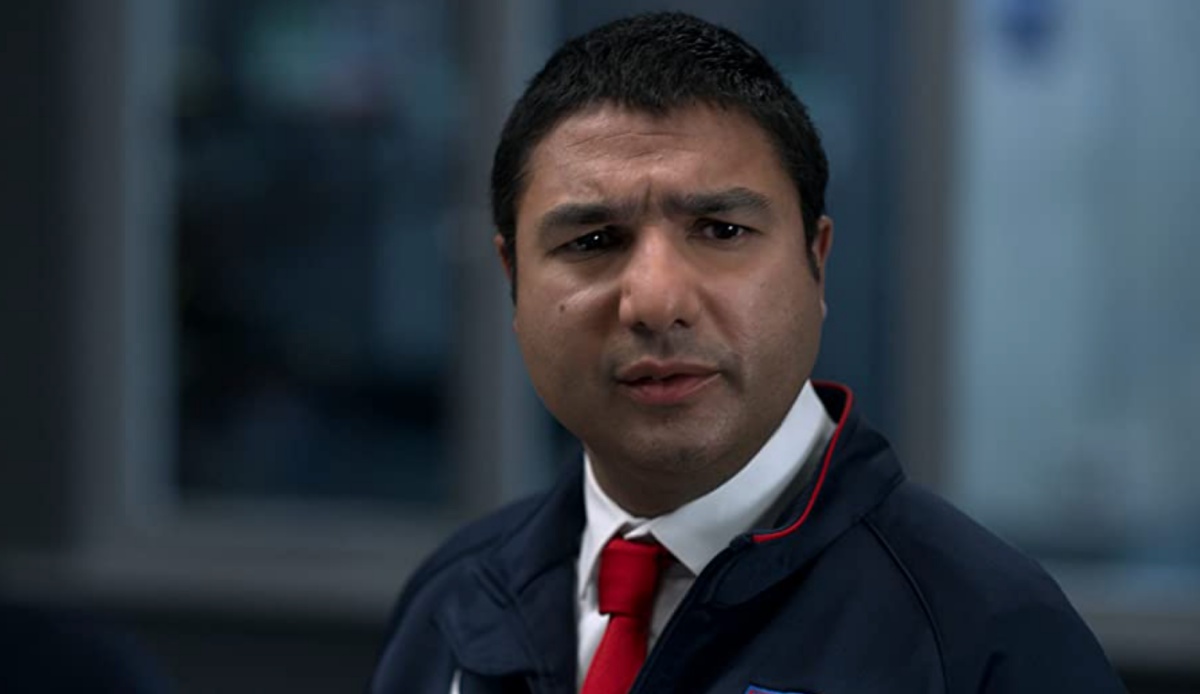Ted Lasso’s Nate the Great and Terrible Could Provide an Interesting Exploration of Being an Asian Man in Football


All through this season of Apple TV+’s Ted Lasso, I have come to really loathe Nate, as played by the very sweet Nick Mohammed. There are so many ways Nate has leaned into the most toxic elements of football masculinity culture, and it has been exhausting.
Nate’s turn to villainy is doubly interesting. It is a compelling look at how people who are bullied can become bullies themselves—especially when they decide that their own mistreatment gives them entitlement—but also, Nate has been the sole recurring Asian character on the show.
Anti-Asian racism in the U.K. is different from that in the United States for a number of reasons. Unlike in the United States, where the Asian population is relatively low compared to other minority groups, in the U.K., the Asian population, according to 2011 census data, is the second-largest ethnic population, following white British people. Due to that, there have been lots of overtly hostile interactions between white and Asian populations in the U.K., dating explicitly from the ’60s onward.
“Paki bashing” became something that Southeast Asian communities had to fear—predominantly from white power skinheads, the National Front, and the National Party—throughout the 1970s and 1980s.
Going even further back, in 1901, when the first Chinese laundry in the British capital opened, the business was stoned by a crowd of people. British seamen would try to stop Chinese workers from going on ships. After WWII, Britain forcefully deported hundreds of Chinese seamen who had been recruited by the Royal Navy because they were seen as an “undesirable element” in British society.
With COVID-19, according to the advocacy group End the Virus of Racism, there has been a 300 percent increase in hate crimes towards people of East and Southeast Asian heritage since the start of the pandemic.
In football, the fact that there is racism in the sport is not new, and a lot of the research you will find focuses on Black players. While Black players are very visible in the sport, they also face discrimination on every level: public (anti-black racism from fans in stadiums), private (abusive DMs on social media), and institutional (lack of management and coaching opportunities).
But what about Asian players? Asian coaches?
In 2017, the BBC reported, “Of the 3,000 professional footballers in the English leagues, only 10 of them are British Asians, according to the FA.” Even with those that do exist, like Roger Verdi, born Rajinder Singh Virdee, he changed his name due to racism.
Then, in 2019, Dr. Dan Kilvington wrote a paper about the exclusion of British Asian players and the under-representation of BAME coaches and managers in football.
“Although South Asian communities posses a relationship with football that stretches back almost 130 years, there have been very few success stories observed within English professional football. Because visibility at elite level has been so minimal, embedded stereotypes remain, e.g. parents prioritise education, religion outweighs sport, football is unpopular, physical sports are not suited to the ‘Asian frame’, etc. Although there is a degree of truth to some of these common-sense rationales, particularly among first generation migrant experiences, they have been embellished and popularly employed to explain the exclusion of British Asians from English professional football. In turn, British Asians are perceived as the determining agents in their own exclusion.”
All this to say that Nathan Shelley is one of the few representations of an Asian man in football on television, and that has yet to be fully explored. Especially now that he has turned into a villain driven by an inferiority complex and feelings of being infantilized, I think it is important to make sure it is addressed before it becomes a little too … clichéd.
I have hated Nate this season, and while I’m totally down with having an Asian man as an antagonist, I just hope they recognize that Nate is a man of color, and therefore, his relationship to football will always be different than Ted’s.
(image: Apple TV+)
Want more stories like this? Become a subscriber and support the site!
—The Mary Sue has a strict comment policy that forbids, but is not limited to, personal insults toward anyone, hate speech, and trolling.—
Have a tip we should know? [email protected]
